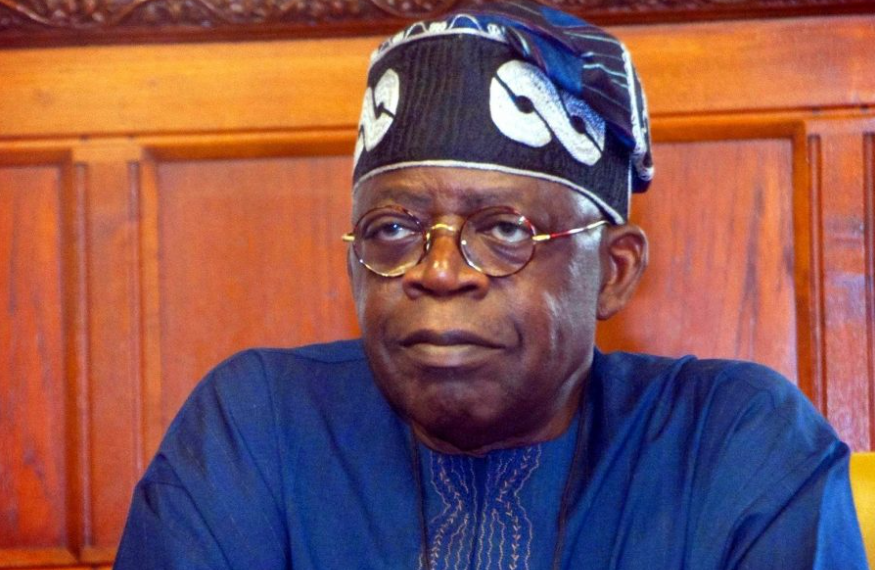
President Bola Tinubu yesterday expressed delight over the latest report from the National Bureau of Statistics (NBS), revealing that the nation’s economy grew in the third quarter, outperforming the previous quarter and exceeding projections
NBS in its report, said the country’s annual Gross Domestic Product, GDP, rose by 3.46 per cent in the third quarter (Q3) of 2024 representing a 0.19 percentage point rise from 3.16 per cent recorded in the second quarter of the year, Q2’24, and 0.92 percentage point higher than the 2.54 per cent growth recorded in the corresponding period of 2023, Q3’23.
It also said the rate of unemployment fell by 1.0 percentage points quarter-on-quarter (QoQ) to 4.3 percent in the second quarter of 2024 from 5.3 percent in Q1’24.
President Tinubu, who welcomed the development, said that the latest figure showed that much work needed to be done and promised that his administration will not rest until Nigerians feel the positive impacts in their pockets and experience a better living standard.
He assured Nigerians of better economic output as the economy continues to expand following the newly released third quarter GDP report by the NBS.
According to NBS, Nigeria’s GDP grew by 3.46 percent, compared to the 3.19 percent growth recorded in the second quarter.
A statement by Special Adviser to the President on Media and Public Communications, Sunday Dare stated that the growth in GDP showed that President Tinubu’s quest for a more robust boost in the economy and, by extension, a better standard of living for all Nigerians is on course.
The statement said: “The 3.46 percent growth indicates Nigeria is recovering from the reforms’ unintended effects.
“President Tinubu said his administration has not and will never forget his promise of a $1 trillion economy by 2030.
“He assured that once the economy is rebased by early 2025 to capture its dynamism and record significant changes that have occurred in different sectors, the country will be on its way to share prosperity.”
The statement explained that the latest GDP growth in the third quarter was driven by key sectors such as Agriculture, Transport, Education, Health, Real Estate, Finance and Insurance, ICT, Trade, and Manufacturing.
“This performance once again shows that the reforms embarked upon by the Tinubu administration to reposition the economy and ensure better fiscal management are beginning to yield fruits,” it said.
It added: “The proposed tax reforms also indicate the administration’s resolve to reduce the tax burden on small businesses and spread prosperity to the poor.
“The new tax regime seeks to promote equity by reducing what is known as the headquarters effect-a situation where states where company headquarters are based get more benefits because their taxes for the whole nation are remitted—in favour of spatial and demographic equity.
“I am excited by the latest report from the National Bureau of Statistics that our economy grew in the third quarter more than last quarter and even beyond projected estimates.
“While I welcome this development, the latest figure also shows the much work that needs to be done. We won’t rest until Nigerians feel the positive impacts in their pockets and experience a better living standard. My administration remains committed to the welfare of our people.”
The top contributing sectors to GDP in Q3 2024 are Agriculture 28.65 percent, ICT 16.35 percent, Trade 14.78 percnt, Manufacturing 8.21 percent, Crude Oil 5.57 percent, Finance & Insurance 5.51percent and Real Estate 5.43percent.
Services sector drives Nigeria’s GDP up 3.46%
NBS report shows that the improvement was driven mainly by the services sector of the economy.
The Bureau stated: “Nigeria’s GDP grew by 3.46 percent (year-on-year) in real terms in the third quarter of 2024.
“This growth rate is higher than the 2.54 percent recorded in the third quarter of 2023 and higher than the second quarter of 2024 growth of 3.19 percent.
“The performance of the GDP in the third quarter of 2024 was driven mainly by the Services sector, which recorded a growth of 5.19 percent and contributed 53.58 percent to the aggregate GDP.
“The agriculture sector grew by 1.14 percent, from the growth of 1.3 percent recorded in the third quarter of 2023.
“The growth of the industry sector was 2.18 percent, an improvement from 0.46 percentage points recorded in the third quarter of 2023.
“In terms of share of the GDP, the services sector contributed more to the aggregate GDP in the third quarter of 2024 compared to the corresponding quarter of 2023.”
According to NBS, the economy in the third quarter of 2024, recorded an average daily oil production of 1.47 million barrels per day (mbpd), higher than the daily average production of 1.45 mbpd recorded in the same period of 2023 by 0.02 mbpd and higher than the 1.41 mbpd recorded in second quarter of 2024 by 0.07mbpd.
Read also:Unemployment rate drops to 4.3% in Q2 2024 — NBS
NBS Stated: “The real growth of the oil sector was 5.17 percent (year-on-year) in Q3 2024, indicating an increase of 6.02 percentage points relative to the rate recorded in the corresponding quarter of 2023 (-0.85 percent).
“Growth decreased by 4.98 percentage points when compared to Q2’24 which was 10.15 percent.
“On a quarter-on-quarter basis, the oil sector recorded a growth rate of 7.39% in Q3 2024.
“The Oil sector contributed 5.5 percent to the total real GDP in Q3 2024, up from the figure recorded in the corresponding period of 2023 and down from the preceding quarter, where it contributed 5.48 percent and 5.7 percent respectively.
“The non-oil sector grew by 3.37 percent in real terms during the reference quarter (Q3 2024).
“This rate was higher by 0.62 percentage points compared to the rate recorded in the same quarter of 2023 which was 2.75 percent and higher than the 2.8 percent recorded in the second quarter of 2024.
“This sector was driven in the third quarter of 2024 mainly by Financial and Insurance (Financial Institutions); Information and Communication (Telecommunications); Agriculture (Crop production); Transportation and Storage (Road Transport); Trade; and Construction, accounting for positive GDP growth”, NBS said.
Commenting on the development, analysts at CardinalStone Research said: “Overall, we estimate that the service sector will remain the cornerstone of GDP growth, underpinning our full financial year 2024 estimate of 3.2 percent against 2.7 percent in 2023.”
On their part, analysts at Afrinvest Plc said: “Trailing, the industries and agriculture sector growth culminated at 2.2 percent and 1.1 percent sequentially, down from 3.5 percent and 1.4 percent in Q2’24.
“We flag that the slowdown in the agricultural sector growth underscores the currently elevated food inflation rate in October 2024 at 39.2 percent. “Likewise, we linked the slowdown in industries sector growth momentum to the reverberating effect of the increase in energy prices (PMS price rose from N750.00/litre in Q2 to N1,060/litre in Q3) and further pressure on the FX rate in the quarter – the NAFEM and parallel market rates fell by 2.4 percent and 10.4 percent in Q3 to N1,541.94/$ and N1,680.00/$ respectively.”
Unemployment rate falls to 4.3% in Q2’24
Disclosing this in its Nigeria Labor Force Survey report for Q2’24, NBS also noted that the employment-to-population ratio increased by 2.9 percentage points QoQ to 76.1 percent in Q2’24 from 73.2 percent.
“The unemployment rate for Q2 2024 was 4.3 percent, showing an increase of 0.1 percentage point compared to the same period last year.
“The unemployment rate among males was 3.4 percent and 5.1 percent among females.
“Youth unemployment rate was 6.5 percent in Q2’24, showing a decrease from 8.4 percent in Q1’24.
“Unemployment based on educational attainment shows that the unemployment rate among persons with post-secondary education was 4.8 percent, 8.5 percent among those with upper secondary education, 5.8 percent for those with lower secondary education, and 2.8 percent among those with primary education in Q2 2024.
“In Q2’24, 76.1 percent of Nigeria’s working-age population was employed, up from 73.1 percent in Q1’24.”
On underemployment rate, NBS said: “In Q2’24, the share of underemployed Nigerians was 9.2 percent, a decline of 1.4 percentage points from the 10.6 percent recorded in Q1’24.
“In Q2’24, the proportion of youth (15-24 years) identified as Not in Education, Employment, or Training NEET was 12.5 percent, down from 14.4 percent in Q1’24.
“The results also showed more female in NEET, with 14.3 percent compared to 10.9 percent for male”
NEET stands for Not in Education, Employment, or Training. It refers to individuals, typically aged between 15 and 24 (although the age range can vary), who are not engaged in formal education, employed, or undergoing vocational or skills training.
Vanguard










